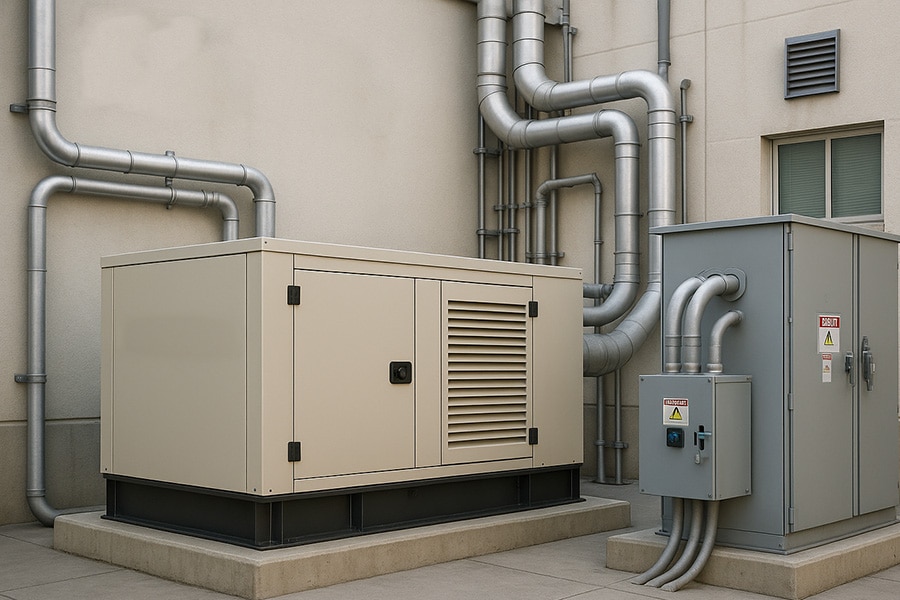Power outages hit hospitals hard. Patients' lives hang in the balance. Backup generators are essential lifelines, not just options.
Backup generators are absolutely vital for hospitals. They ensure continuous power for life-support, critical medical procedures, and essential services during outages. This protects patients, supports staff, and maintains operational integrity, making them a non-negotiable part of healthcare infrastructure.
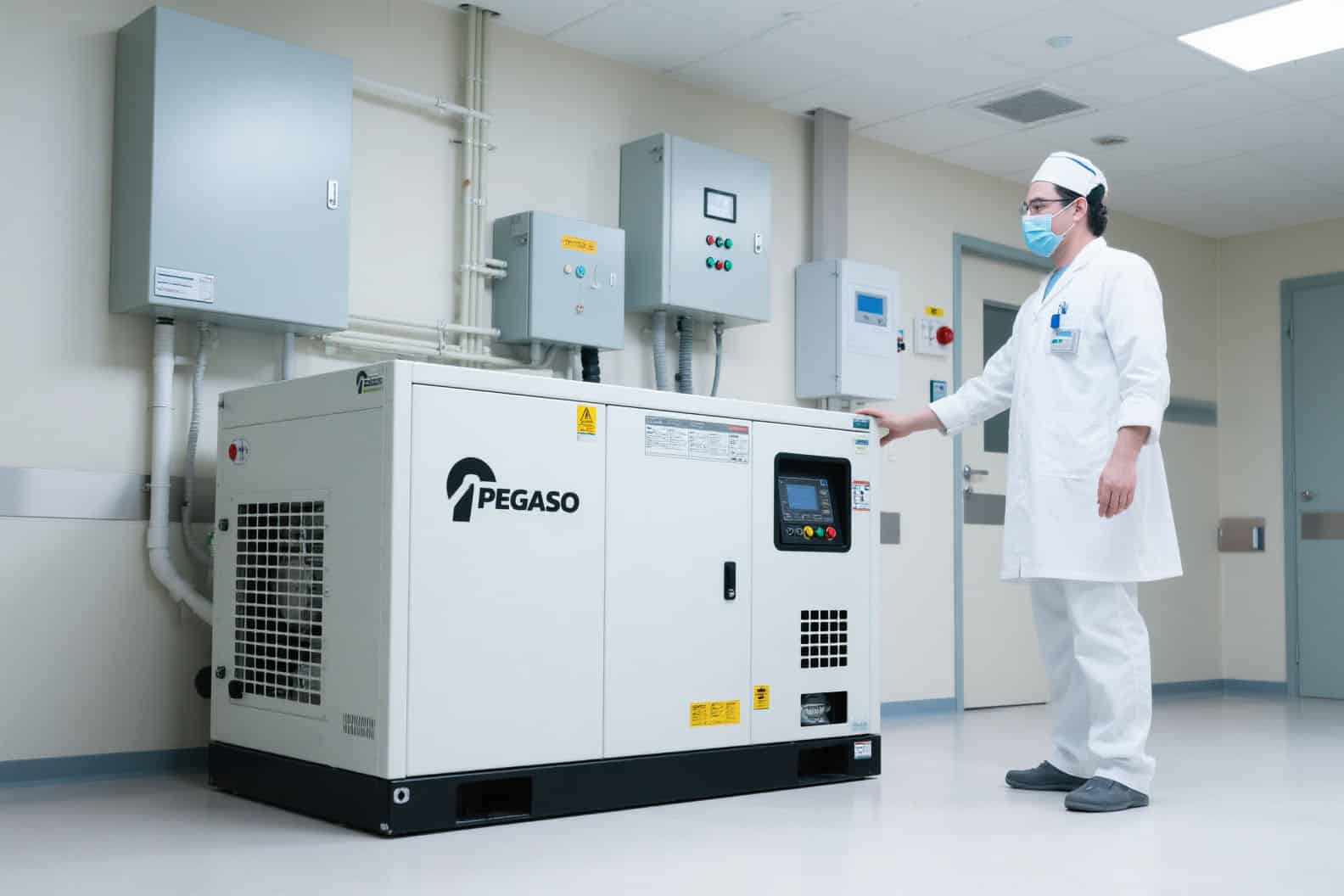
You see, the stakes are incredibly high in a hospital. A moment without power can be the difference between life and death. So, let's dig deeper into why these machines are so crucial.
What is the use of a generator in a hospital, then?
Hospitals depend on constant electricity. Without it, critical systems fail. Generators provide that vital, uninterrupted power when the main grid goes down.
In a hospital, a generator powers life-saving equipment like ventilators and heart monitors. It keeps operating rooms functional, diagnostic machines running, and essential data systems online. It's the backbone of patient care during emergencies.
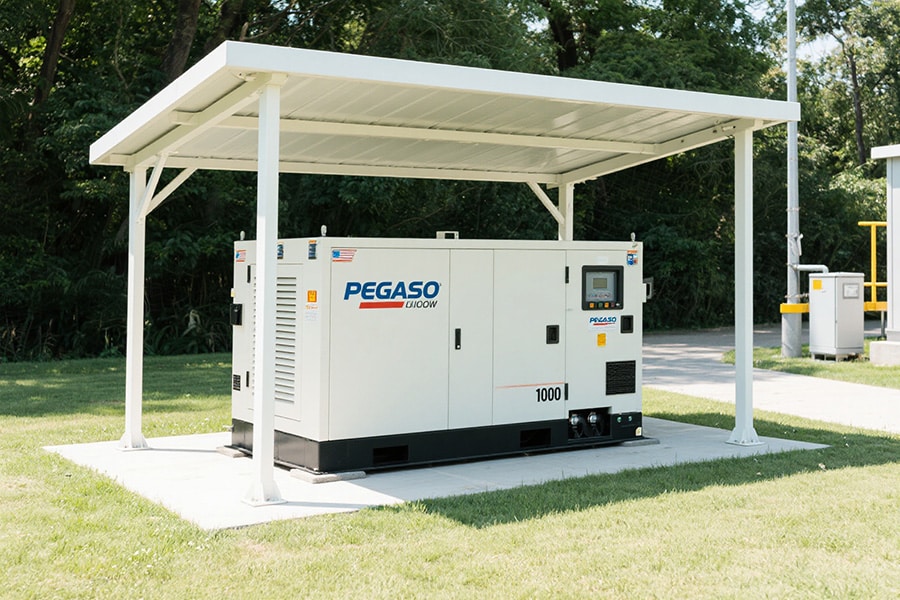
When I think about generators in hospitals, I think about the direct impact on human lives. It's not just about keeping the lights on. It's about ensuring a patient's right to survival.
Protecting Patients Directly
Life-support systems are the most obvious need. Imagine a patient on a ventilator. Or someone in intensive care hooked up to multiple monitors. A power cut, even for a few minutes, could be catastrophic. Generators kick in automatically, often within seconds. This ensures these critical machines keep working. I remember visiting a hospital client once. They told me about a major storm that knocked out power for hours. Their generators kept the ICU running smoothly. No lives were lost because of power failure. That’s the power of preparedness. It's a stark reminder of why my work in the generator industry, helping facilities like these, feels so important.
Maintaining Medical Operations
Beyond immediate life support, think about all the other medical processes.
- Diagnostic Equipment: MRI machines1, CT scanners2, X-ray machines all need stable power.Delays in diagnosis can lead to worsening conditions. If these machines go down, treatment plans can be severely delayed, impacting patient outcomes.
- Surgical Suites: Operations cannot stop midway. Lights, monitoring equipment, surgical tools – all rely on electricity. A power loss here is unthinkable. Backup power ensures surgeons can complete their work safely.
- Hospital Information Systems: Patient records, medication databases, and communication systems are electronic. Losing access to this information during an emergency can create chaos and errors. Imagine not being able to access a patient's allergy information or medication history.
A generator ensures these processes continue without a hitch, preserving the integrity of medical care. It's about making sure doctors and nurses have the tools they need, when they need them most, no matter what's happening with the external power grid.
So, is it worth getting an emergency generator for a hospital?
Backup generators are a big investment. Some might wonder if the cost is justified. But what is the cost of a life?
Yes, an emergency generator is absolutely worth it for a hospital. The cost pales in comparison to the potential loss of life, compromised patient care, and damage to a hospital's reputation. It's an investment in safety and continuity.
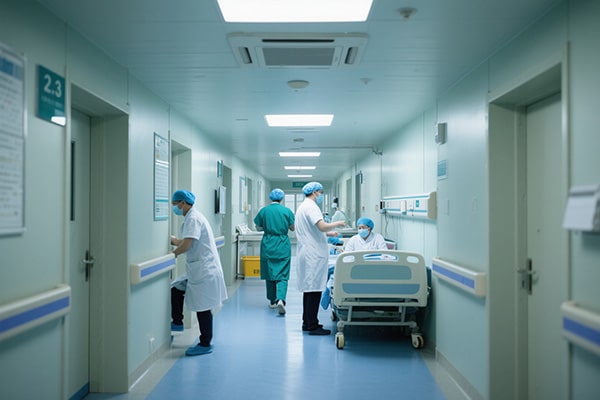
The question of "worth" in a hospital setting takes on a very serious meaning. We're not just talking about financial return on investment in the usual business sense. We're talking about the fundamental value of protecting human life and ensuring the hospital can always function. From my years in the generator business, I've seen firsthand how this investment pays dividends in ways that can't always be measured in dollars alone.
Sustaining Basic Hospital Functions
During a power outage, it's not just the high-tech medical equipment that's affected. Think about these essential functions:
- Lighting: Corridors, patient rooms, emergency exits need to be lit for safety and navigation. Staff need to see to perform their duties, and patients need to feel secure.
- HVAC Systems: Climate control is crucial for patient comfort. It can also be critical for controlling infection or maintaining specific environmental conditions for sensitive equipment or procedures, like in operating rooms or labs.
- Elevators: Essential for moving patients, staff, and equipment between floors, especially in multi-story hospitals. Imagine trying to move a critical patient manually up several flights of stairs.
- Refrigeration: Medications, blood supplies, and lab samples often require specific temperatures. A power failure could render these vital supplies unusable, costing a fortune and potentially impacting patient care.
An emergency generator ensures these basic, yet vital, operational aspects are maintained. This builds operational resilience. The hospital can continue to serve its community even when the surrounding area is dark.
The Real Cost of Not Having One
I've seen businesses struggle with power issues, but in a hospital, the stakes are infinitely higher. The cost of not having a reliable backup generator isn't just monetary.
| Potential Consequence | Description |
|---|---|
| Loss of Life | Patients on life support or undergoing surgery are at immediate risk. |
| Compromised Patient Care | Delayed diagnostics, inability to perform procedures, medication errors. |
| Equipment Damage | Sudden power loss or surges can damage sensitive and expensive equipment. |
| Legal Liability | Lawsuits from patients or families affected by power-related incidents. |
| Reputational Damage | Loss of trust from the community and regulatory bodies. |
When you weigh these risks against the cost of a generator system, the decision becomes clear. It’s a critical investment. A client of mine, who manages a regional hospital, once said, "Our backup generator isn't an expense; it's our promise to our patients that we'll always be here for them." That really stuck with me. It highlights the core mission of healthcare.
Given all this, do I really need a backup generator for my hospital?
Some hospital administrators might still hesitate. Perhaps they think major outages are rare. But this isn't just about convenience; it's a fundamental requirement.
Yes, your hospital absolutely needs a backup generator. It's not merely a recommendation but often a legal and regulatory mandate. Failing to have one can lead to severe consequences, including loss of accreditation and legal action.
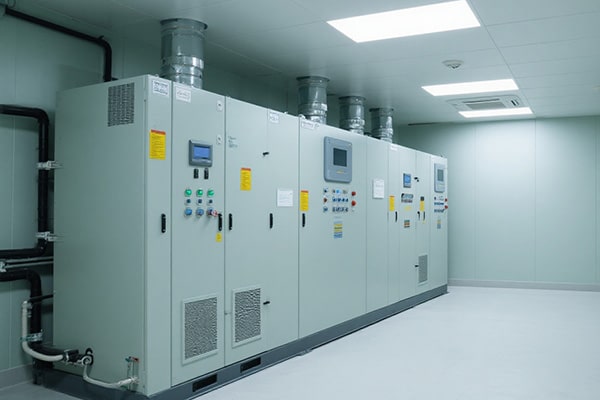
If you're a purchasing manager or someone in a decision-making role at a hospital, the answer to "Do I really need one?" is a resounding yes. It’s not a matter of choice; it's an absolute imperative. This comes down to several critical factors, moving beyond just the immediate patient care benefits we've discussed. My experience working with healthcare facilities on their power solutions has shown me this time and time again.
Meeting Regulatory and Accreditation Standards
Most countries and healthcare standard-setting bodies have strict rules about backup power in hospitals.
-
International Standards: Organizations like the World Health Organization (WHO)3 and various international accreditation bodies4 (like JCI - Joint Commission International) emphasize the need for reliable emergency power. These standards are often benchmarks for quality care globally.
-
National and Local Regulations: In the USA, for example, codes from the National Fire Protection Association (NFPA), specifically NFPA 99 (Health Care Facilities Code) and NFPA 110 (Standard for Emergency and Standby Power Systems), mandate backup generators for critical hospital areas. These codes specify which parts of the hospital must have backup power and how quickly that power must be available. State and local health departments often have their own specific requirements layered on top of these.
These aren't just guidelines; they are often legally binding. Tertiary hospitals, trauma centers, and facilities with critical care units simply cannot operate legally without certified backup power systems. I've worked with many hospitals ensuring their generator setups meet these exacting standards. It's a detailed process, involving careful selection of generator size, type, fuel, and testing protocols, but it's absolutely essential for compliance and safety.
Avoiding Severe Consequences
What happens if a hospital doesn't comply or if its backup system fails during a critical time?
| Consequence Type | Details |
|---|---|
| Medical Malpractice | If a patient is harmed due to a power failure and no adequate backup was in place, it's a clear liability. This can lead to devastating lawsuits. |
| Regulatory Violations | Fines, sanctions, and even forced closure can result from non-compliance with power regulations. Health departments take this very seriously. |
| Loss of Accreditation | This is huge. Accreditation is vital for a hospital's reputation, its ability to receive payments from insurers (including Medicare/Medicaid), and its overall standing in the medical community. |
| Operational License | In severe cases of non-compliance or negligence leading to patient harm, the hospital could lose its license to provide care. |
The absence of a robust backup generator system isn't just an oversight; it's a serious lapse that can jeopardize the entire institution. As a purchasing manager, ensuring your hospital has a reliable, compliant backup power system is one of your most critical responsibilities. It's about protecting patients, staff, and the hospital's very existence. I always tell my clients in the healthcare sector: don't think of a generator as just equipment; think of it as your hospital's lifeline and your shield against disaster. It's fundamental to your duty of care.
Conclusion
In short, backup generators are non-negotiable for hospitals. They save lives, ensure continuous care, and meet critical legal standards. Every hospital must have one.
-
Exploring how MRI machines operate will highlight the critical role of stable power in producing clear and accurate images for medical assessments. ↩
-
Learning about the power requirements of CT scanners can enhance knowledge about their reliability and effectiveness in medical imaging. ↩
-
Exploring this link will provide insights into WHO's impact on health standards and emergency power reliability. ↩
-
This resource will help you understand the significance of international accreditation in ensuring quality healthcare services. ↩

